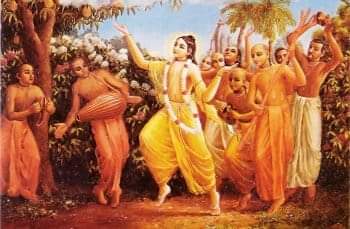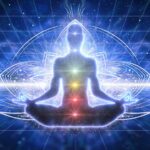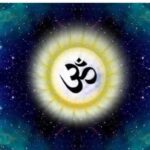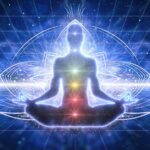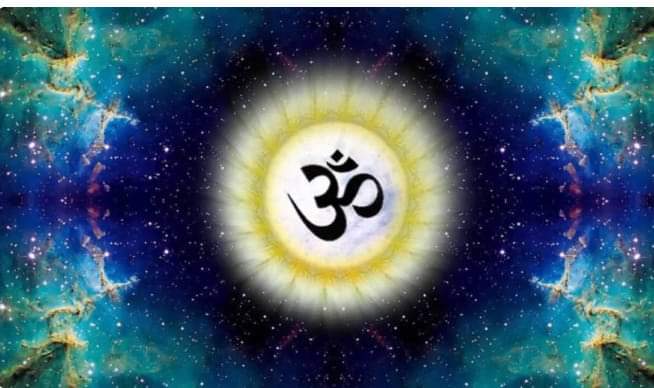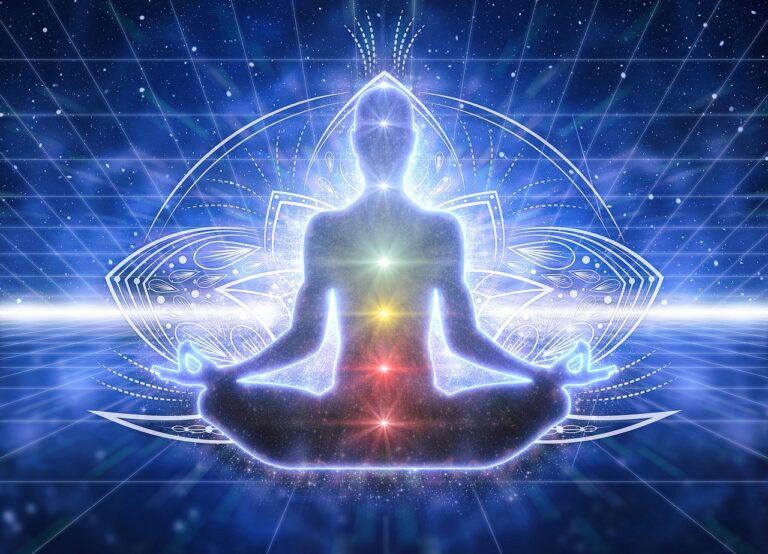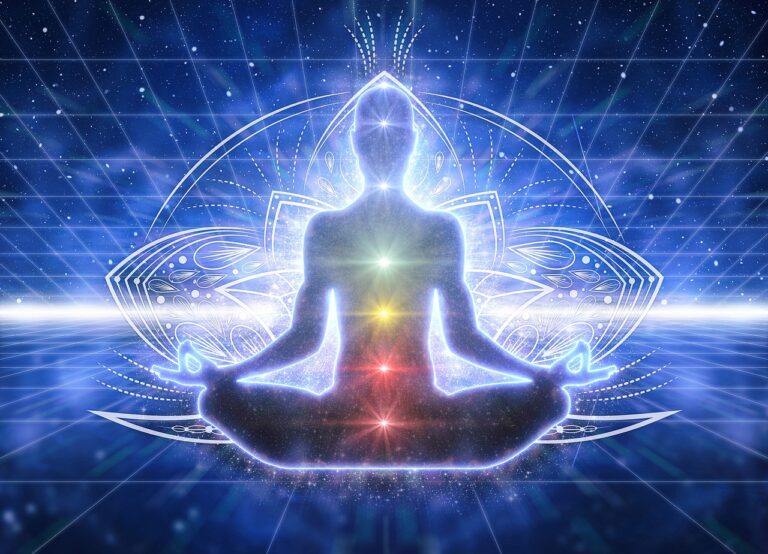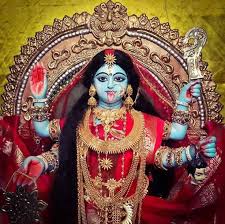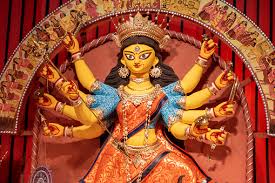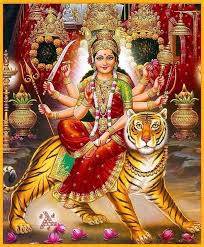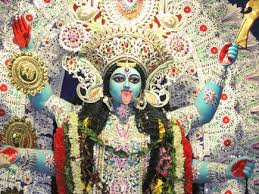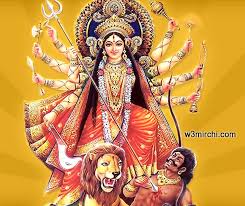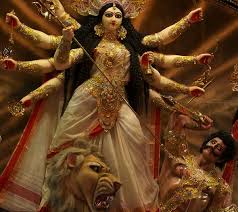।। श्रीहरि:।।
[भज] निताई-गौर राधेश्याम [जप] हरेकृष्ण हरेराम
भक्तिस्त्रोत उमड़ने से पहले
तावत्कर्मणि कुर्वीत न निर्विद्येत यावता।
मत्कथाश्रवणादौ वा श्रद्धा यावन्न जायते।।
भक्ति तथा मुक्ति का प्रधान और मुख्य कारण कर्म ही है। निष्काम और सकाम-भेद से कर्म दो प्रकार का है। सकाम कर्म भुक्तिप्रद है। उससे भूः, भुवः और स्वर्ग- इन तीन ही लोकों के भोग प्राप्त हो सकते हैं और निष्काम कर्म के द्वारा आत्मशुद्धि होकर साधक भक्ति तथा मुक्ति का अधिकारी बनता है। जो हृदय-प्रधान साधक हैं उन्हें निष्काम कर्मों के करते रहने से साधु-महात्माओं में प्रीति उत्पन्न होती है। महात्माओं के अधिक संसर्ग में रहने से उन्हें भगवत-कथाओं में श्रद्धा उत्पन्न हो जाती है। भगवत-कथाओं में श्रद्धा होने से भगवद्गुणों में रति हो जाती है। भगवद्गुणों में रति होने के बाद भक्ति उत्पन्न होती है, भक्ति ही अन्तिम साध्य वस्तु है, उसे ही पराकाष्ठा या परा गति कहते हैं। जो मस्तिष्क-प्रधान साधक होते हैं, उन्हें निष्काम कर्मों के द्वारा आत्मशुद्धि होकर भगवद्भक्ति प्राप्त होती है, फिर संसारी विषयों से वैराग्य होता है, वैराग्य से उन्हें ज्ञान की इच्छा उत्पन्न होती है और ज्ञान के द्वारा वे मुक्ति को प्राप्त कर सकते हैं।
मुक्ति ही प्राणिमात्र का चरम लक्ष्य है। यही जीवों की एकमात्र साध्य वस्तु है। इसीलिये मुक्ति तथा भक्ति का प्रधान हेतु वर्णाश्रमविहित कर्म ही है। जब तक भगवत-कथाओं में पूर्णरूप से श्रद्धा उत्पन्न न हो जाय, बिना भगवत-कथा श्रवण किये चैन ही न पड़े अथवा जब तक संसारी विषयों से पूर्णरीत्या वैराग्य न हो जाय, चित्त सर्वदा इन संसारी भोगों से हटकर एकान्तवास के लिये लालायित न बना रहे तब तक सभी प्रकार के मनुष्यों को अपने-अपने अधिकारानुसार कर्तव्य-कर्मों को करते ही रहना चाहिये। जो श्रद्धा तथा वैराग्य के पूर्व ही अज्ञान के वशीभत होकर कर्मों का त्याग कर देते हैं, वे नारकीय जीव हैं, वे स्वयं कर्म-त्यागरूपी पाप के द्वारा अपने लिये न करके मार्ग को परिष्कृत करते हैं। ऐसे पुरुष न तो भक्त बन सकते हैं और न ज्ञानी, वे इस संसार-चक्र में ही पड़े घूमते रहते हैं।
कुछ ऐसे भी नित्यभक्त वा जीवन्मुक्त महापुरुष होते हैं, जिन्हें फिर से कर्म करने की आवश्यकता नहीं होती, वे पहले से ही मुक्त अथवा भक्त होते हैं। शुक-सनकादि जन्म से ही मुक्त थे। नारदादि पहले से ही भक्त होकर उत्पन्न हुए, इनके लिये किसी प्रकार के विशेष कर्मों के अनुष्ठान की आवश्यकता नहीं हुई। इनमें आरम्भ से ही वैराग्य तथा भक्ति विद्यमान थी। इसीलिये शुक-सनकादि आरम्भ से ही ज्ञानी बनकर स्वेच्छापूर्वक विचरण करते रहे और नारदादि सदा हरि-गुण गान करते हुए सभी लोकों को पावन बनाते फिरे। अतएव इनके लिये आरम्भ से ही कोई कर्तव्य-कर्म नहीं था।
अब प्रश्न यह है कि भक्ति तथा मुक्ति में कौन-सी वस्तु श्रेष्ठ है? इनका उत्तर यही दिया जा सकता है कि या तो इनमें से कोई भी श्रेष्ठ नहीं या दोनों ही श्रेष्ठ हैं। ये दोनों ही स्थिति सनातन हैं, सदा से प्राणियों की ये ही दो परम स्थिति सुनी गयी हैं। वेद-शास्त्रों से ज्ञानी-महर्षियों ने इन्हीं दो स्थितियों का वर्णन किया है। ‘तस्य तदेव मधुरं यस्य मनो यत्र संलग्नः’ जिसके जो अनुकूल पड़े उसके लिये वही सर्वोत्तम है। हृदय और मस्तिष्क की ये दो ही शक्तियाँ हैं। जिसमें जिसकी प्रधानता होगी, उसको वही मार्ग रुचिकर होगा। दूसरे से उसे कोई प्रयोजन नहीं। वह तो अपने ही मार्ग को सर्वस्व समझेगा। अब यह प्रश्न उठता है कि बहुधा भक्तों को यह कहते सुना गया है कि ‘हम तो मुक्ति को अत्यन्त तुच्छ समझते हैं, भक्ति के बिना मुक्ति को हम तो ठुकरा देते हैं।’ इसके विपरीत ज्ञान-मार्ग के साधकों के द्वारा यह सुना गया है कि ‘मुक्ति ही मनुष्य का चरम लक्ष्य है, भक्ति उसका साधन भले ही हो किन्तु साध्य वस्तु तो मुक्ति ही है। मुक्ति के बिना परम शान्ति नहीं।’ इनमें से किसकी बात मानें? दो बातें तो ठीक हो नहीं सकतीं। फिर वे दो ऐसी बातें जो परस्पर में एक-दूसरे के विरुद्ध हों।
यदि ध्यानपूर्वक इन दोनों बातों पर विचार किया जाय तो इन दोनों में कोई विरोध नहीं मालूम पड़ता। लोक में भी देखा जाता है कि जिस मनुष्य को जो वस्तु अत्यन्त प्रिय होती है, वह कहता है ‘मैं तो इससे बढ़कर त्रिलोकी में कोई वस्तु नहीं समझता।’ उसके कथन का अभिप्राय इतना ही है कि मुझे तो यही वस्तु अत्यन्त प्रिय है, मेरे लिये तो इससे बढ़कर कोई दूसरी वस्तु नहीं है। ‘नहीं’ कहने से उसका अभिप्राय अन्य वस्तुओं के ‘अभाव’ से न होकर ‘प्रिय’ से है। अर्थात मुझे इसके सिवा दूसरी वस्तु प्रिय नहीं है। उसका कथन एक प्रकार से ठीक भी है, जब तक उसकी उस वस्तु के प्रति अनन्यता न हो जायगी तब तक उसमें प्रीति कही ही नहीं जा सकती। इसी प्रकार भक्ति का मार्ग जिन्होंने ग्रहण किया है, उनके लिये ज्ञान के द्वारा मुक्ति प्राप्त करना कोई वस्तु ही नहीं है और जिन्होंने ज्ञान के मार्ग से जाने का दृढ़ निश्चय कर लिया है, उनके लिये किसी भी प्रकार के नाम-रूप का चिन्तन करना महान विघ्न है। ये हम साधारण लोगों के समझने के लिये साधारण-सी दलीलें हैं।
वास्तव में तो भक्ति तथा मुक्ति दो वस्तु हैं ही नहीं। एक ही वस्तु को दो नामों से पुकारते हैं, अपनी भावना के ही अनुसार एक प्रिय वस्तु को दो रूपों में देखते हैं। साध्य तो एक ही है- उसे चाहे भक्ति कह लो या मुक्ति और उसका साधन भी एक ही है- अनासक्तभाव से भगवत-सेवा या कर्तव्य समझकर निष्काम कर्म। हाँ, करने की प्रक्रियाएँ पृथक-पृथक अवश्य हैं, जिनका रुचि-वैचित्र्य के कारण अधिकारी-भेद से पृथकृ-पृथक होना आवश्यक ही है। एक में त्याग ही प्रधान है, घर को त्यागो, संग को त्यागो, आसक्ति को त्यागो, नाम-रूप को त्यागो, फिर अपने-आपको भी त्याग दो। दूसरे में प्रेम की प्रधानता है, अच्छे पुरुषों से प्रेम करो, भगवद्भक्तों से प्रेम करो, भगवत-चरित्रों से प्रेम करो, प्रेम से प्रेम करो। फिर जाकर प्रेम में समा जाओ। ये मुक्ति-भक्ति दो मार्ग हैं। महाप्रभु चैतन्यदेव का जीवन तो भक्तिमार्ग का एक प्रधान स्तम्भ है।
उनके जीवन में शुद्ध भक्ति का परम पवित्र स्वरूप है, उसमें पक्षपात का लेश नहीं, दूसरे मार्ग के प्रति विद्वेष नहीं। किसी भी कर्म की उपेक्षा नहीं। संकुचित भावों की गन्ध नहीं। वहाँ तो शुद्ध प्रेम है! ज्यों-ज्यों आगे बढ़ना चाहो त्यों-ही-त्यों अधिकाधिक प्रेम करो, यही शिक्षा उसमें ओत-प्रोतरूप से भरी पड़ी है। उनका नाम लेकर आज जो बातें कही जाती हैं, वे चैतन्यदेव की कभी हो ही नहीं सकतीं। इसका साक्षी उनका प्रेममय जीवन ही है। ये साम्प्रदायिक विचार तो पीछे के संकुचित बुद्धि वाले लोगों के मस्तिष्क से निकले हैं। अपनी चीज का नाम कोई जो चाहे रख ले। कोई रोकने वाला थोड़े ही है। चैतन्य का जीवन तो परम प्रेममय, सभी को आश्रय देने वाला परम महान है, उसमें भला साम्प्रदायिक संकुचित भावों का क्या काम? इनके हृदय में प्राणिमात्र के भावों का आदर था।
निमाई पण्डित का अब दूसरा विवाह हो गया है। विष्णुप्रिया उनके सब प्रकार से अनुकूल आचरण करती हैं। उनका स्वभाव हँसमुख है, वे सुशीला हैं, गृहकार्यों में चतुर हैं और अत्यन्त ही पतिपरायणा हैं, वे अपने पति को ही सर्वस्व समझती हैं। यह सब होते हुए भी निमाई का चित्त अब उदास ही रहता है। पता नहीं क्यों? अब उनकी वह चपलता न जाने कहाँ चली गयी? घंटों एकान्त में न जाने क्या सोचा करते हैं? अब उन्हें संसारी बातों से अनुराग नहीं है। अब उनका हृदय किसी विशेष वस्तु के लिये छटपटाता-सा दिखायी पड़ता है। अब वे अपने में किसी एक विशेष अभाव का-सा अनुभव करने लगे हैं। इस बात से उनके सभी स्नेही चिन्तित रहते हैं।
जब हृदय में किसी प्रबल भाव का आगमन होने को होता है, तो उसके पूर्व हृदय एक प्रकार के अभाव का अनुभव करने लगता है। जी चाहता है कहीं चलकर अपनी प्रिय वस्तु को ले आवें। ऐसी ही दशा में लोग तीर्थों में जाते हैं। तीर्थों में अच्छे-अच्छे धार्मिक लोगों के सत्संग का सुयोग प्राप्त होता है, विरक्त साधु-महात्माओं के दर्शन होते हैं। उनके सत्संग तथा सदुपदेश से हृदय में एक प्रकार की शान्ति होती है। इसलिये निमाई की भी इच्छा तीर्थ-भ्रमण करने की हुई।
बंगाल में सकामकर्मों की प्रधानता है, वहाँ के बहुत ही कम मनुष्य निष्कामकर्म का महत्त्व जानते हैं। अधिकांश लोग किसी-न-किसी कामना से ही सम्पूर्ण धार्मिक कार्यों को करते हैं। सकामकर्मों में पितृश्राद्ध को बहुत महत्त्व दिया गया है। स्मृतियों में तो पितृकर्मों से भी देवकर्मों की अधिक महत्ता दी गयी है। गृहस्थियों के लिये पितृकर्म ही मुख्य बताये गये हैं। पितृकर्मों में गयाधाम में जाकर पितरों के श्राद्ध करने का बहुत भारी माहात्म्य वर्णन किया गया है, इसलिये प्रतिवर्ष बंगाल से लाखों मनुष्य गया जी में पितृश्राद्ध करने आते हैं। दूसरे प्रान्तों से भी बहुत बड़ी संख्या में यात्री गया जी पितृश्राद्ध करने आते हैं, किन्तु बंगाल में इसका प्रचार अन्य प्रान्तों की अपेक्षा विशेष है। अबकी बार अन्य लोगों के साथ निमाई पण्डित ने भी गया में जाकर अपने पिता का श्राद्ध कर आने का विचार किया। किन्तु इनके विचार में अन्य लोगों की भाँति सकाम भावना नहीं थी, ये तो अपने अभाव को दूर करने और धार्मिक लोगों के भावों का आदर करने के निमित्त ही गया जी जाना चाहते थे।
क्रमशः अगला पोस्ट [35]
••••••••••••••••••••••••••••••••••
[ गीताप्रेस,गोरखपुर द्वारा प्रकाशित श्री प्रभुदत्त ब्रह्मचारी कृत पुस्तक श्रीचैतन्य-चरितावली से ]
, Shri Hari:.
[Bhaj] Nitai-Gaur Radheshyam [Chant] Harekrishna Hareram
before the source of devotion
He should do it in action until he is not detached.
or at the beginning of hearing My story until faith is born.
Karma is the main and main reason for devotion and liberation. Karma is of two types with the distinction of selfless and fruitless. Fruitful action is rewarding. From him Bhuh, Bhuvah and Swarg – these three worlds can be enjoyed and by self-purification through selfless work, the seeker becomes entitled to devotion and liberation. Those who are heart-oriented seekers, by doing selfless deeds, love is generated in saints and great souls. Being in contact with the Mahatmas, they develop faith in Bhagwat-stories. By having faith in Bhagwat-stories, one becomes engrossed in the qualities of Bhagavad. Devotion arises after becoming engrossed in Bhagavadgunas, devotion is the last attainable object, it is called Parakaashta or Para Gati. Those who are head-oriented worshippers, they attain devotion to the Lord by self-purification through selfless actions, then there is detachment from worldly subjects, from detachment they develop the desire for knowledge and through knowledge they can attain liberation.
Liberation is the ultimate goal of the living being. This is the only attainable object of the living beings. That’s why the main cause of salvation and devotion is the work prescribed by Varnashram. Until there is complete faith in Bhagwat-Kathas, until there is no peace without listening to Bhagwat-Kathas, or until there is complete disinterest in worldly subjects, the mind should not always stay away from these worldly pleasures and yearn for solitude. Till then all types of human beings should continue to perform their duties according to their respective rights. Those who, under the influence of ignorance, give up their actions even before faith and renunciation, they are hellish creatures, they themselves purify the path by the sin of renunciation of actions, not for themselves. Such men can neither become devotees nor wise, they keep roaming in this worldly cycle.
There are some such eternal devotees or great men who are free from life, who do not need to do work again, they are already free or devotees. Shuk-Sankadi was free from birth itself. Naradadi was already born as a devotee, there was no need for any special rituals for her. Vairagya and devotion were present in them from the very beginning. That’s why Shuk-Sankadi, being knowledgeable from the very beginning, kept moving around voluntarily and Naradadi always went around purifying all the worlds by singing the praises of Hari. That’s why there was no duty-action for them from the beginning.
Now the question is that which is the best between devotion and liberation? The only answer that can be given to these is that either none of them is superior or both are superior. Both these conditions are eternal, these two ultimate conditions of the living beings have always been heard. The sages and sages have described these two situations from the Vedas and scriptures. ‘Tasya tadev madhuram yasya mano yatra attached:’ The one who is favorable to him, that is the best. These are the two powers of the heart and the mind. In which the one who has priority, that path will be interesting to him. He has no use for others. He will understand his own path as everything. Now the question arises that many times devotees have been heard to say that ‘we consider liberation very insignificant, we reject liberation without devotion.’ Contrary to this, it has been heard by the seekers of the path of knowledge. That ‘liberation is the ultimate goal of man, devotion may be its means, but the attainable thing is liberation. There is no ultimate peace without liberation.’ Which of these should we listen to? Two things cannot be right. Then those two such things which are against each other.
If these two things are considered carefully, then there is no conflict between them. It is also seen in the world that the person who loves the thing very much, he says, ‘I do not understand anything in Triloki more than this.’ The meaning of his statement is that this thing is very dear to me, There is nothing more important than this. By saying ‘no’, he does not mean ‘absence’ of other things but ‘beloved’. That means I don’t love anything other than this. His statement is also correct in a way, until there is no exclusivity towards that thing, there can be no love in it. Similarly, for those who have taken the path of devotion, there is no object for them to attain liberation through knowledge, and for those who have determined to follow the path of knowledge, for them, thinking about any kind of name and form is great. There is an obstacle. These are simple arguments for us ordinary people to understand.
In fact, devotion and liberation are not two things at all. They call the same thing by two names, they see a dear thing in two forms according to their feelings. The end is only one – whether you call it devotion or liberation and its means is also the same – service to God with non-attachment or selfless work considering it as duty. Yes, the processes of doing are definitely different, which are necessary to be separated from official-distinction due to their interest-strangeness. Renunciation is the main thing in one, renounce home, renounce company, renounce attachment, renounce name and form, then renounce yourself as well. In the second there is primacy of love, love good men, love Bhagavad devotees, love Bhagwat-characters, love love. Then go and merge in love. There are two ways of liberation and devotion. The life of Mahaprabhu Chaitanyadev is a main pillar of the path of devotion.
In his life there is the most pure form of pure devotion, there is no trace of partiality in it, there is no hatred towards the other path. Don’t neglect any karma. There is no smell of narrow feelings. There is pure love! As much as you want to move forward, love more and more, this education is filled in it. The things that are said today by taking his name, can never happen to Chaitanyadev. His love life is the witness of this. These communal thoughts have emerged from the minds of people with narrow minds behind. One can name his thing whatever he wants. There is hardly anyone to stop. Chaitanya’s life is the most loving, the one who gives shelter to all, the most great, what is the use of communal narrow feelings in it? He had respect for the feelings of every living being in his heart.
Nimai Pandit is now married for the second time. Vishnupriya behaves favorably in all respects. Her nature is cheerful, she is soft-spoken, clever in household chores and very devoted to her husband, she considers her husband to be everything. Despite all this, Nimai’s mind remains sad. do not know why? Don’t know where has that agility of his gone now? Don’t know what do you think in solitude for hours? Now he is not attached to worldly things. Now his heart seems to be yearning for something special. Now they have started experiencing some special lack in themselves. All his loved ones remain worried because of this.
When a strong emotion is about to arrive in the heart, before that the heart starts experiencing a kind of absence. G wants to go somewhere and bring his favorite thing. In such condition people go on pilgrimages. In pilgrimages, one gets the opportunity of satsang of good religious people, gets darshan of disinterested sages and mahatmas. There is a kind of peace in the heart from his satsang and good advice. That’s why Nimai also wanted to go on pilgrimage.
In Bengal there is importance of fruitful work, very few people there know the importance of selfless work. Most of the people do all the religious works with one wish or the other. Great importance has been given to Pitrashradh in fruitful works. In the Smritis, more importance has been given to the deeds of God than the deeds of ancestors. Father’s work has been told to be the main thing for the householders. In Pitru Karma, the greatness of going to Gayadham to perform Shradh of ancestors has been described, that is why every year lakhs of people from Bengal come to Gaya ji to perform Pitru Shradh. A large number of travelers from other provinces also come to Gaya ji to perform Pitrashradh, but its promotion in Bengal is special as compared to other provinces. This time Nimai Pandit along with other people also thought of going to Gaya and performing Shradh of his father. But he didn’t have a sense of success in his thoughts like other people, he wanted to go to Gaya only for the sake of removing his lack and respecting the feelings of religious people.
Next post respectively [35]
••••••••••••••••••••••••••••••••••
[From the book Sri Chaitanya-Charitavali by Sri Prabhudatta Brahmachari, published by Geetapress, Gorakhpur]

